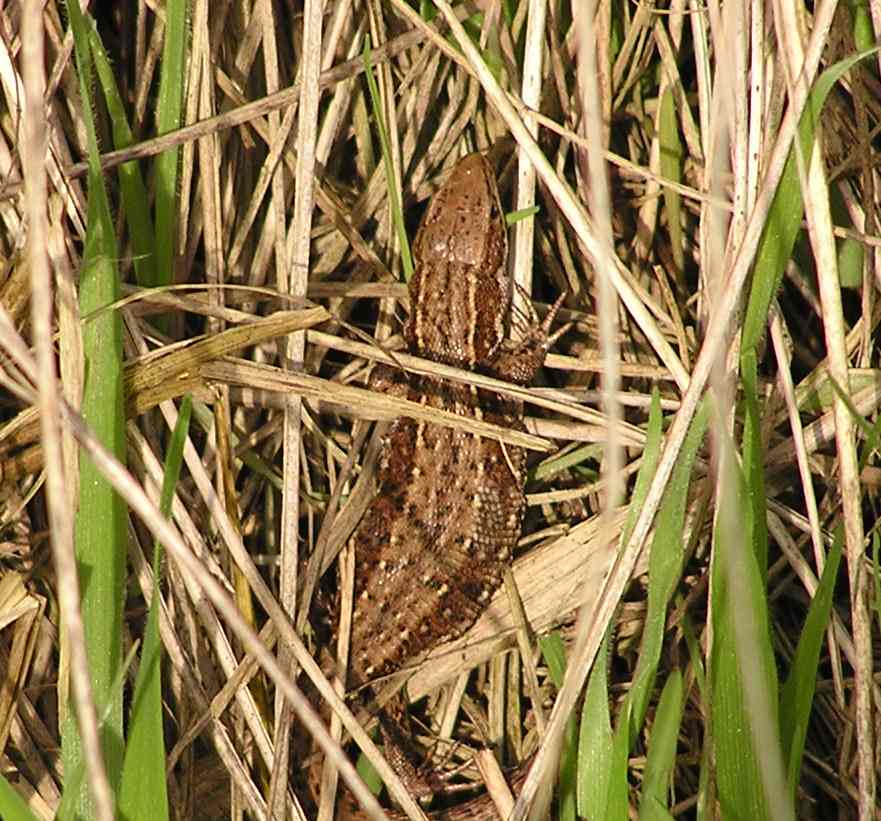 |
 |
Just sharing some pictures: |
| Author | Message |
|
Alan Hyde Senior Member Joined: 17 Apr 2003 No. of posts: 1416 View other posts by Alan Hyde |
Posted: 23 Apr 2003 O-> O+> |
|
David Bird Forum Specialist Joined: 17 Feb 2003 No. of posts: 515 View other posts by David Bird |
Posted: 04 May 2003
British Herpetological Society Librarian and member of B.H.S Conservation Committee. Self employed Herpetological Consultant and Field Worker. |
|
Alan Hyde Senior Member Joined: 17 Apr 2003 No. of posts: 1416 View other posts by Alan Hyde |
Posted: 04 May 2003 Hi David , Any chance you could post the pic again ? I'd like to see it. Thanks, Alan O-> O+> |
|
Martin Senior Member Joined: 23 Feb 2003 No. of posts: 87 View other posts by Martin |
Posted: 04 May 2003 Definately please. Alan that picture is superb! |
|
Alan Hyde Senior Member Joined: 17 Apr 2003 No. of posts: 1416 View other posts by Alan Hyde |
Posted: 04 May 2003 Thanks Martin! David, I can see the picture now ,thanks. So, are you saying that the sex of common lizards can be determined by the colour of the underside? I have never paid much attention to this in the past I must confess. Cheers, Alan O-> O+> |
|
David Bird Forum Specialist Joined: 17 Feb 2003 No. of posts: 515 View other posts by David Bird |
Posted: 04 May 2003 Alan I always thought you could until I found the specimen photographed, one of several so far, with the bright ornge belly. Perhaps members know of other populations or it might be more frequent than this with specimens occuring all over the country. When you normally see them basking you do not usually see the belly of course so it is only if you are catching them for some reason that it is visible. British Herpetological Society Librarian and member of B.H.S Conservation Committee. Self employed Herpetological Consultant and Field Worker. |
|
Alan Hyde Senior Member Joined: 17 Apr 2003 No. of posts: 1416 View other posts by Alan Hyde |
Posted: 05 May 2003 Hi David, Interesting suff, I shall take note of the underside in future and take pics. Cheers, Alan O-> O+> |
|
Andy Member Joined: 30 Jul 2003 No. of posts: 4 View other posts by Andy |
Posted: 30 Jul 2003 Hi! Just joined the forum today after surfing for some information about the Common Lizard. I have a small population in my back garden. Spotted about 8 adults today, basking when the sun came out, as well as 7 young (3 basking together), the others resting on leaves. Having recently perchased a digital camera, I am taking photos of them and recording sightings. The information in the forum has helped me identify males and females, thank you. My compost heap is also home to several slow worms. I am planning to build a website diary of the wildlife I share my garden with over the next few weeks. I will keep you posted!
Andy Grevatt, Brighton, East Sussex UK |
|
-LAF Senior Member Joined: 03 Apr 2003 No. of posts: 317 View other posts by -LAF |
Posted: 31 Jul 2003 Hi guys, This is a female from central Lincolnshire (sorry about the annotations, can't find my original off hand) and she seems very typical of the females I find all over the county. I have only found females there with this colour or a slightly more orange underside. Can't say I've paid much attention elsewhere though (I will from now on). 
Cheers, Lee. Lee Fairclough |
|
GemmaJF Admin Group Joined: 25 Jan 2003 No. of posts: 2090 View other posts by GemmaJF |
Posted: 31 Jul 2003 Hi Andy welcome to RAUK, we could do with some pictures of juveniles for the ID pages if you get any good ones  Gemma Fairchild, Independent Ecological Consultant |
|
Chris G-O Member Joined: 14 May 2003 No. of posts: 36 View other posts by Chris G-O |
Posted: 25 Jan 2004 My first common lizards of 2004 on Bournemouth clifftops today. A few wall lizards have been out on and off throughout the winter. Photo of male common lizard from today below. cheers, Chris  Chris Gleed-Owen, Research & Monitoring Officer, The HCT & BHS Research Committee Chair |
|
j gaughan Senior Member Joined: 04 May 2003 No. of posts: 57 View other posts by j gaughan |
Posted: 25 Jan 2004 nice one Chris let us know if you get a 'sand lizard' out this month, given the last six days and a cold forecast ahead. Keith Corbett recorded them for every month in Dorset and our only Jan. record for the Wealden sites was a juv. from 5 yrs. ago. Despite the incidental / random nature of these 'out of season' records, they are valuable 'phenological data', which may show, over time (eg. decades), patterns of change in relation to climate and other factors . . . . . . always worth recording. john |
|
j gaughan Senior Member Joined: 04 May 2003 No. of posts: 57 View other posts by j gaughan |
Posted: 24 Feb 2004 Just for the record Our 'first reptile' in the Weald was a viviparous lizard (imm. 2003), out on Feb.12th at 14.15 hr, dashing into heather on 'Thursley Common NNR', Surrey. That was a bright ( _no full sun), mild day with no wind but high UV, as we all evidently 'caught the sun'. Numerous insects were on the wing, including aquatic beetles, and in the distance we watched a Great Grey Shrike feeding from it's favourite perch all afternoon on this early spring feast. John |
- Just sharing some pictures |